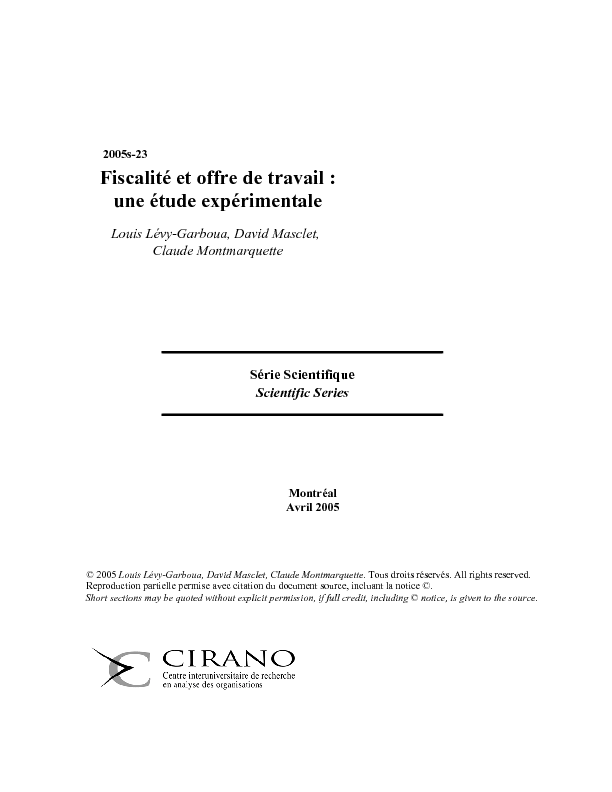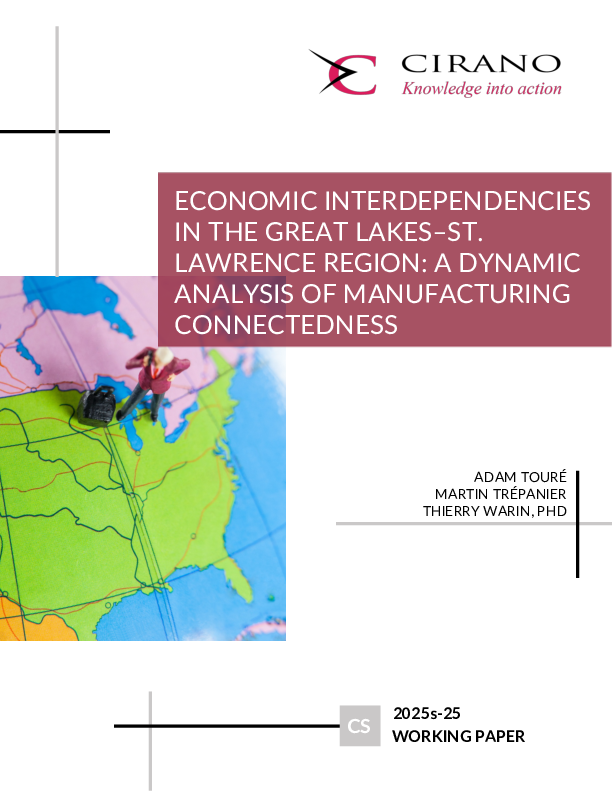Fiscalité et offre de travail :
une étude expérimentale
We make use of experimental economics to examine how people adjust their supply of work effort in response to a variation in tax rates. Participants are paired in the experiment. In each pair, one participant randomly chosen has to exert an effort and is taxed to the benefit of the other participant. The working subjects are confronted with four different tax rates (12%, 28%, 50% or 79%) and are asked to perform a number of real tasks. We ran four different treatments depending on volume of work (high or low) and whether the tax rate is chosen by the other subjects in the pairing or randomly chosen by the computer. We observe that the work supply decreases (increases) with a rise (decline) in tax rates. We find a strong disincentive effect of taxation, particularly when the tax rates are chosen by the tax receivers in the high volume of work treatment.
[ - ]




